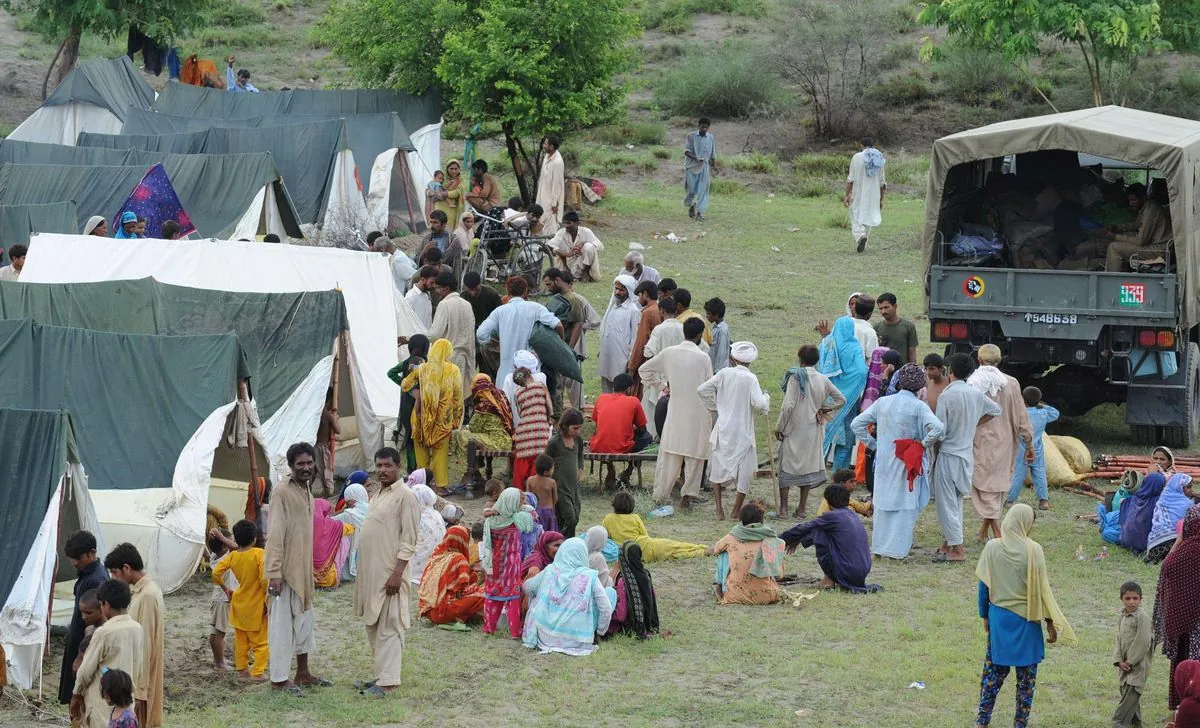Pakistan's Flood Preparedness Questioned as Child Casualties Rise
Recent floods in Pakistan highlight ongoing vulnerability, with children comprising half of 300 casualties since July. Experts criticize lack of progress since devastating 2022 floods, raising concerns about future disaster readiness.

Recent flooding in Pakistan has once again brought attention to the country's vulnerability to natural disasters, with experts expressing concern over the lack of progress in flood preparedness since the devastating events of 2022. The situation underscores the ongoing challenges faced by Pakistan, the world's fifth-most populous country, in addressing climate-related risks.
According to Save the Children, more than half of the approximately 300 people killed by floods and heavy rains since July 2024 are children. This alarming statistic highlights the disproportionate impact of natural disasters on the most vulnerable segments of society. The charity reports that over 150 children have lost their lives, with an additional 200 injured and thousands displaced.

The recent floods have had a significant impact on agriculture, a crucial sector of Pakistan's economy. In Sanghar district, located in the southern Sindh province, 80% of cotton crops have been destroyed, severely affecting farmers' livelihoods. This region, which was heavily impacted by the 2022 floods, is once again grappling with the consequences of extreme weather events.
Khuram Gondal, country director for Save the Children in Pakistan, emphasized the long-term implications of these disasters on children's education. In Sindh province alone, over 72,000 children have had their education disrupted due to the floods.
Experts criticize the lack of progress in flood preparedness since the 2022 catastrophe. Mohsin Leghari, a former irrigation minister, noted that millions of people continue to build mud-brick homes in flood-prone areas, demonstrating a failure to learn from past experiences. The situation is exacerbated by the fact that Pakistan has yet to undertake major reconstruction work, as most of the $9 billion pledged by the international community at a donors' conference in Geneva has not materialized.
Wasim Ehsan, an architect, pointed out that disregard for construction laws in both urban and rural areas contributes to the country's vulnerability. This issue was tragically illustrated in 2022 when a hotel built near a diverted river was destroyed by floodwaters in the Swat region.
As Pakistan faces these recurring challenges, it's worth noting that the country contributes less than 1% of global greenhouse gas emissions but is among the most vulnerable to climate change impacts. The nation has taken some steps to address these issues, including ratifying the Paris Agreement in 2016 and launching its first National Climate Change Policy in 2012. However, the recent floods underscore the urgent need for more effective implementation of disaster preparedness and climate adaptation strategies.
"Based upon my past experience of supervising relief operations, I could say that Pakistan may suffer damages if it faces the 2022-like floods."
As Pakistan continues to grapple with these challenges, the international community and local authorities must work together to enhance the country's resilience to climate-related disasters and protect its most vulnerable citizens.


































